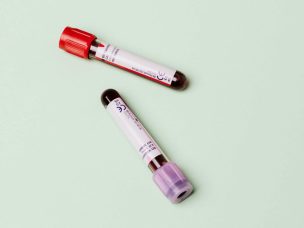![]() Medically reviewed by Dr. Kimberly Langdon Cull, M.D. on Sept. 21, 2023
Medically reviewed by Dr. Kimberly Langdon Cull, M.D. on Sept. 21, 2023
No major side effects were reported in this phase 1 study of the recombinant human antibody NI006 for ATTR cardiomyopathy and heart failure.
Cardiomyopathy induced by misfolded transthyretin (transthyretin amyloid, or ATTR) is a deadly, degenerative illness. There has been improvement in delaying disease progression, but currently, no medication removes ATTR from the heart to improve cardiac dysfunction. The recombinant human anti-ATTR antibody NI006 was developed to aid phagocytic immune cells in removing ATTR.
A trial published in The New England Journal of Medicine assessed the safety of intravenous infusions of NI006 in individuals with ATTR cardiomyopathy and identified any potential adverse events.
Study Population
In this double-blind, placebo-controlled trial, 40 patients with wild-type or mutant ATTR cardiomyopathy and chronic heart failure were given intravenous infusions of NI006 or a placebo every 4 weeks for 4 months. Twenty-seven participants were sequentially enrolled in six cohorts and received increasing doses from 0.3 to 60 milligrams per kilogram of body weight. Thirteen participants received a placebo. The median age of the patients (ages 28 to 87) was 72 years.
Adverse Events That Arose Throughout the Trial
No major drug-related side effects were observed in patients using NI006. Heart failure and arrhythmias were the most common adverse events seen; both are common in this patient population. As NI006 dosages were raised, so was the incidence of musculoskeletal side effects such as arthralgia and arthritis. Nonsteroidal anti-inflammatory medications or low-dose glucocorticoids were used to treat most minor episodes.
Reduced Amyloid Content in the Heart
After 4 months of medication, increased total NI006 exposure was linked with reduced cardiac tracer uptake and extracellular volume on cardiac MRI compared to baseline. After 12 months of NI006 therapy, cardiac tracer uptake and extracellular volume had further decreased. In contrast, individuals in the placebo group showed increased cardiac tracer uptake and extracellular volume on cardiac MRI after 4 months. These levels dropped in these individuals after 8 months in the open-label extension phase, in which they received NI006.
Decrease in Other Cardiac Markers and the Pharmacokinetics of NI006
It also appeared that median levels of troponin T and N-terminal pro-B-type natriuretic peptide (cardiac markers) were lowered with exposure to higher doses of NI006. No anti-drug antibodies were found, and the pharmacokinetic profile of NI006 was compatible with that of an IgG antibody.
Echocardiographic examinations, functional measurements like the 6-minute walk distance, and quality-of-life measures are also used to assess disease progression.
Source:
Garcia-Pavia, P., Siepen, F. a. D., Donal, E., Lairez, O., Van Der Meer, P., Kristen, A. V., Mercuri, M., Michalon, A., Frost, R. J., Grimm, J., Nitsch, R. M., Hock, C., Kahr, P. C., & Damy, T. (2023b). Phase 1 trial of antibody NI006 for depletion of cardiac transthyretin amyloid. The New England Journal of Medicine, 389(3), 239–250. https://doi.org/10.1056/nejmoa2303765










